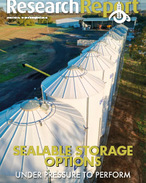This article is 7 years old. Images might not display.
Scientists from Murdoch University have found crushed macadamia shells could be more efficient than traditional charcoal in treating certain kinds of poisoning, such as paracetamol overdoses.
Currently, Australian medical facilities treat patients by getting them to ingest a charcoal made from coconut shells which expand in the stomach to soak up toxins.
This latest research funded by Hort Innovation has found the absorption rate of crushed macadamia shells is similar to the traditional coconut shell treatment but can be specially engineered to be more effective at mopping up toxins, and target specific drugs.
Head researcher, Dr Gerrard Eddy Jai Poinern, said the study uncovered surprising results.
“At the Nanotechnology Research Labs, we’ve engineered a super absorbent solution with the unique inner matrix of the macadamia shells to mop up molecules of paracetamol at remarkable rates,” Dr Poinern said.
“By grinding and engineering the macadamia shells into micro-particles we can create a new form of activated charcoal solution that helps trap the drug molecules that are poisoning the body,” he said.
The same study, which was conducted at Murdoch University with funding from macadamia industry levies and funds from the Australian Government through Hort Innovation, also found some interesting potential uses for macadamia shells in the gold mining industry.
Research showed that the high-quality activated carbons in macadamia shells could be used during the carbon-in-pulp process companies use to extract gold.
Dr Poinern said the gold industry in Australia relies heavily on imported coconut-based activated carbons, with demand here and worldwide very high, presenting an ideal opportunity to better utilise macadamia shells.
He said next, researchers need to refine the process of macadamia nut shell conversion to improve properties such as strength, toughness and absorption performance to bring the products up to medical grade and gold industry standard.
Hort Innovation chief executive John Lloyd said the new finding paves the way for growers and processors to tap into an additional income stream.
“Limiting food waste is an increasing area of research investment for horticulture industries. Growers are always looking for novel ways to repurpose their produce off-cuts,” Mr Lloyd said.
“When it comes to macadamias, 65 per cent of the weight of the nut is in the shell so there is a huge volume of shell generated,” he said.
“These findings are exciting because they present a great opportunity to add value, providing another revenue stream in macadamia production.”























